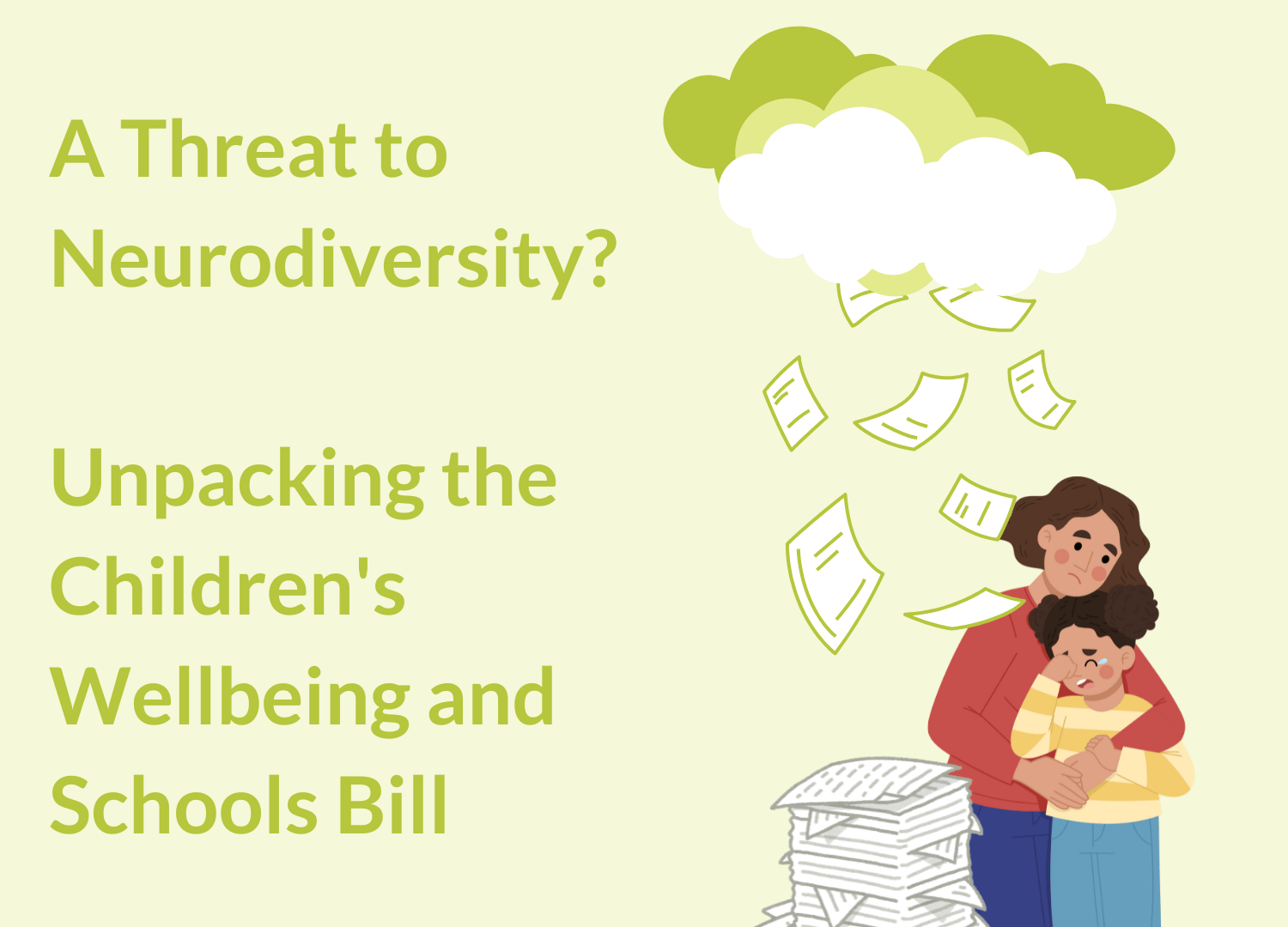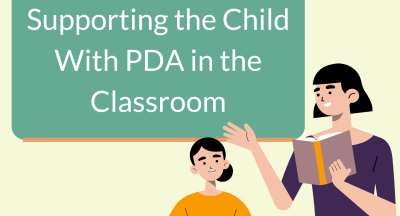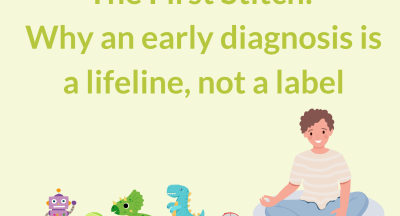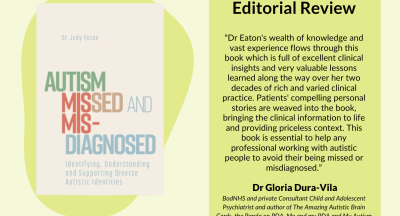
Last updated: 9th July 2025

IMPORTANT NOTE:
This blog article was written based on the content within the ‘Current version of the Bill’ accessible here – https://bills.parliament.uk/bills/3909 – on 8th July 2025.
It is essential to note the complexity of evolving legislation, where clause numbers can change between different versions of a bill.
While the Bill is presented with the laudable aim of safeguarding all children, its mechanisms risk creating a rigid, punitive, and surveillance-heavy system that is fundamentally at odds with the needs of the neurodiverse community. Instead of fostering the flexible, low-arousal, and child-led approaches that we know can be transformative, the Bill threatens to punish families who have been failed by the very system it claims to improve. It risks becoming a legislative hammer for a problem that requires a therapeutic, person-centred touch.
The School Environment: A Hostile World for Many
These children often need significant adjustments: a low-arousal environment, a focus on special interests, and the flexibility to learn in a way that aligns with their neurology.
When schools are unable or unwilling to provide this, the consequences for a child’s mental health can be devastating. For many families, Elective Home Education (EHE) is not a lifestyle choice but a last resort—a desperate, loving act to protect a child from an environment causing them profound harm. It is a decision made to create a sanctuary where a child can recover, regulate, and finally begin to learn and grow.
Closing the Escape Hatch: The concerns of Clause 30
On the surface, this may sound like a safeguard. In reality, for the SEND community, it is a trap. It gives a veto power to the very system that may have comprehensively failed the child in the first instance. Imagine a scenario we see all too often: a family has fought for years to get an appropriate Education, Health and Care Plan (EHCP) for their autistic child. The support is inadequate, the school environment remains overwhelming, and the child is suffering. The family decides the only way to protect their child’s wellbeing is to home educate. Under this Bill, the LA—the same body that failed to ensure the right support was in place—could simply refuse permission.
This is not a hypothetical fear. For families of children with complex needs, where traditional behavioural approaches are counter-productive, a school environment can be intolerable. The Bill risks forcing these children to remain in settings that are actively harming their mental health, effectively closing the critical “escape hatch” that home education provides. It punishes families for the state’s own systemic failures.
The Register: A Tool for Control, Not Support (Clauses 31-35)
The register demands parents provide extensive, intrusive details about their educational provision. For a family facilitating a child-led, interest-based learning approach—often the most effective method for an autistic child—how does one quantify “hours of instruction”?
How do you fit a fluid, responsive, therapeutic educational style into a bureaucratic box designed for a school-centric model?
The fear is that LA officials, often lacking a nuanced understanding of neurodiversity, will use the register to judge these bespoke educational approaches as “unsuitable.” An education tailored to an autistic child’s need for a low-demand, interest-led life may look very different from a school timetable, but it can be the key to unlocking their potential. The Bill creates a system where this could be penalised, not celebrated. It risks imposing a rigid, neurotypical standard on a community defined by its diversity of thought and learning.
From Support to Surveillance: The Architecture of Control (Clause 4)
The SUI facilitates a “cradle-to-grave” digital record, linking data across health, education, and social care. Combined with the duty to share information, this effectively dismantles the principle of professional confidentiality. When a parent can no longer speak to a GP or a psychologist in confidence, for fear that their struggles will be permanently logged on a state database and potentially used against them, they are less likely to seek help. This chilling
effect will be particularly acute for neurodiverse families, who often navigate complex mental health and behavioural challenges.
This model is chillingly reminiscent of Scotland’s failed ‘Named Person’ scheme, which was struck down by the UK Supreme Court for breaching privacy rights. The Bill appears to ignore this crucial legal precedent, creating a system that treats all families as potential risks to be monitored.
True wellbeing is fostered through trust, collaboration, and empowerment. It comes from investing in properly funded and inclusive schools, resourcing child and adolescent mental health services, and providing tangible support to families. The Children’s Wellbeing and Schools Bill, in its current form, does the opposite. It diverts resources to monitoring and bureaucracy. It creates a climate of fear and suspicion. And it threatens to harm the very children it purports to protect, sacrificing the nuanced, individual needs of our neurodivergent young people at the altar of state control.
Related Posts
Back to school for children with PDA … five years on
Article Updated - September 2022 Since this article was first written in 2017...
Supporting the Child With PDA in the Classroom – Part One
Previous blog articles have touched upon the challenges faced by parents whose...
The First Stitch: Why an early diagnosis is a lifeline, not a label
Early autism/ADHD diagnosis empowers parents and children, offering...
Autism – The tragedy of the missed and misdiagnosed
Blog updated 10th April 2024The inspiration for this blog article came from three...




